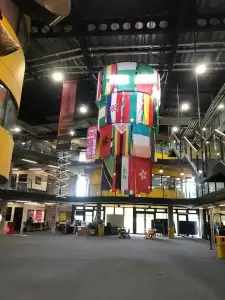 We do not have fair access to numeracy and literacy skills for all primary school students in England. In 2019, roughly half of disadvantaged students left primary school with the expected level of Numeracy and Literacy skills, compared to almost 70% of all pupils. This attainment gap persists despite the tireless work of countless brilliant primary education practitioners, many of whom I have been lucky to meet during my research on the subject.
We do not have fair access to numeracy and literacy skills for all primary school students in England. In 2019, roughly half of disadvantaged students left primary school with the expected level of Numeracy and Literacy skills, compared to almost 70% of all pupils. This attainment gap persists despite the tireless work of countless brilliant primary education practitioners, many of whom I have been lucky to meet during my research on the subject.
This is by no means a new issue, and it has only been exacerbated by COVID pandemic and subsequent lockdowns. Unsurprisingly, recent research has found that children were the group of people hit hardest by lockdowns, with free school meals eligible pupils often feeling the most severe effects.
The recent schools white paper announced new targets to ensure ‘opportunity for all’ with 90% of all students nationally to reach expected levels of Numeracy and Literacy by 2030, a 20% jump on current results. As new ambitious targets are set out, there has never been a better time to take stock of the state of play of primary education, and to question how to ensure all young people can thrive in a post pandemic world.
 School buildings are set up to engage an inquisitive mind
School buildings are set up to engage an inquisitive mindNumeracy and literacy skills at primary school form the foundations that all future learning is built on. They set an educational path for a lifetime, which once set can be hard to change the course of. There are many reasons why a young person may find it challenging to gain these ‘foundational skills’. This means a focus on numeracy and literacy during primary school often involves supporting a young person with a range of factors, some of which are hidden from immediate view. If the country is truly to ‘level up’ opportunity, we must first ensure that access to foundational skills at primary school is truly equitable.
I have been privileged to visit many amazing schools during my research on foundational skills in primary schools, across a range of locations and contexts, who all do so much to ensure that all pupils can achieve.
Recently I visited The Arbib Education Trust in Langley, Berkshire. This unique group of 2 primary schools, a secondary school and a sixth form, utilises an approach called ‘museum learning’ which was pioneered by the New York Museum School.
As well as numeracy and literacy, pupils also boost their language, communication and other skills which will prove useful long after they leave primary school.
Across the trust every school building is set up to engage an inquisitive mind. While walking around the site we saw exhibits on Jackson Pollock, the celebration of role models through history, the role of different nations during world wars and even an exhibit about the drink Horlicks (which was made in the local area for many years).
The aim of this is to empower all young people to ‘join a conversation’ on a range of topics, through carefully planned and meaningful experiences. On the day I visited, for example, pupils were designing a roman road which could eventually be built outside, but only once they had demonstrated the numeracy and history knowledge required to show their understanding.
 School buildings are set up to engage an inquisitive mind
School buildings are set up to engage an inquisitive mindThis approach is built around engaging ways of learning. All pupils gain foundational skills through museum visits, absorbing exhibitions around the school and termly projects where pupils become experts on a topic and present their findings to the class. As well as acquiring the numeracy and literacy skills that are so important, pupils also boost their language, communication and other skills which will prove useful long after they leave primary school.
Pre-pandemic, The Arbib Education Trust also conducted family trips to museums, to ensure all pupils have equal access to culturally enriching experiences. They are looking to restart this soon. Such trips are driven by the wants, needs and desires of families, and serve a clear purpose for each pupil’s educational journey. Arbib’s consultation with families and the community shows the power of parental engagement and involvement in a pupil’s education. The importance of families concerning primary education has been acknowledged in the recent schools white paper too, with the inclusion of the ‘Parent Pledge’.
Not every school needs a large aeroplane hanging from the ceiling in the foyer, or a 10ft dinosaur next to its canteen, as Arbib’s secondary school has. But experiencing this trust’s commitment to bringing learning to life, and ensuring all pupils have an equal voice, left me feeling inspired. Which must be how the pupils feel too.
